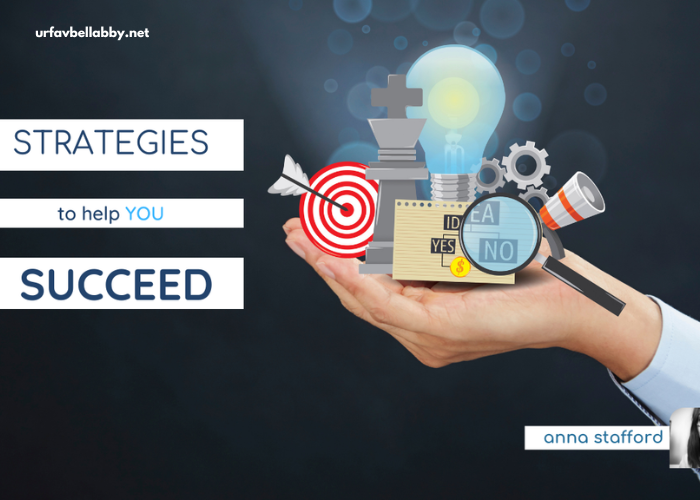In today’s fast-paced business world, staying competitive is more challenging than ever. As technology evolves and consumer expectations shift, businesses must adapt to remain relevant. This is where innovative business solutions come into play, enabling modern enterprises to thrive in a complex and dynamic marketplace. In this article, we explore the latest trends and strategies that can drive growth and efficiency for modern organizations, and how businesses can leverage these solutions to optimize their operations and stay ahead of the competition.
The Need for Innovation in Modern Enterprises
Adapting to Rapid Technological Change
Technological advancement is one of the most significant drivers of change in the modern business landscape. From artificial intelligence (AI) to cloud computing, automation, and blockchain, these technologies are reshaping how companies operate and interact with their customers. Embracing these innovations is crucial for staying competitive, reducing operational costs, and improving customer satisfaction. Without innovation, businesses risk becoming obsolete in a rapidly changing environment.
Meeting Evolving Consumer Expectations
Today’s consumers are more informed, connected, and demanding than ever before. With easy access to information and a multitude of options, customers expect seamless experiences, personalized services, and fast responses. To meet these expectations, businesses need to adopt customer-centric approaches that are powered by innovative solutions such as AI-driven customer service, real-time data analytics, and personalized marketing strategies.
Enhancing Efficiency and Productivity
As businesses scale, operational inefficiencies become more noticeable and costly. The demand for increased productivity and cost-effectiveness has never been higher. Innovative business solutions help streamline operations, automate repetitive tasks, and improve decision-making processes. By embracing new technologies and methodologies, companies can optimize their workflows, improve employee productivity, and reduce costs.
Key Innovative Business Solutions for Modern Enterprises
1. Artificial Intelligence (AI) and Machine Learning (ML)
Artificial Intelligence (AI) and Machine Learning (ML) are two of the most transformative technologies in the modern business landscape. These technologies enable businesses to automate tasks, predict trends, and make data-driven decisions with greater accuracy. AI-powered solutions can improve customer service through chatbots, assist in fraud detection, and even optimize supply chains by predicting demand and adjusting inventory levels.
AI-Driven Customer Service
AI-powered chatbots and virtual assistants are revolutionizing customer service by providing 24/7 support and answering frequently asked questions without human intervention. These AI tools can handle large volumes of customer inquiries, reduce response times, and improve overall customer satisfaction. By freeing up human agents to focus on more complex issues, AI enhances operational efficiency and ensures that customers receive timely and relevant support.
Predictive Analytics and Decision-Making
AI and ML are also widely used in predictive analytics, helping businesses identify trends and opportunities. By analyzing large sets of historical data, these technologies can forecast future outcomes, such as customer behavior or market trends. This allows businesses to make more informed decisions, reduce risks, and develop proactive strategies that are tailored to specific needs.
2. Cloud Computing and Cloud-Based Solutions
Cloud computing has become a cornerstone of modern business operations, providing flexibility, scalability, and cost savings. Cloud-based solutions allow businesses to access and store data, applications, and services on remote servers, eliminating the need for on-premises infrastructure. This enables organizations to scale their operations easily, reduce capital expenses, and increase accessibility.
Remote Work and Collaboration Tools
Cloud computing has paved the way for remote work, which has become a staple for many modern enterprises. With cloud-based collaboration tools such as Google Workspace, Microsoft Teams, and Slack, employees can work from anywhere and collaborate seamlessly. These tools support file sharing, video conferencing, project management, and communication, all in real time. The flexibility and convenience of cloud-based solutions empower businesses to adapt to the changing work environment and enhance productivity.
Data Security and Backup Solutions
Data security is a top concern for businesses in today’s digital age. Cloud-based backup and security solutions provide a secure and reliable way to protect sensitive data from cyber threats, data breaches, and natural disasters. Many cloud providers offer advanced encryption, multi-factor authentication, and regular data backups to ensure the integrity of business data. This level of protection helps businesses comply with data privacy regulations and safeguard their reputation.
3. Business Process Automation (BPA)
Business Process Automation (BPA) refers to the use of technology to automate repetitive and time-consuming tasks, reducing manual effort and minimizing errors. BPA can be applied to a variety of functions, including HR, finance, marketing, and supply chain management. By automating routine tasks, businesses can enhance efficiency, improve accuracy, and free up employees to focus on more strategic activities.
Streamlining Administrative Tasks
In many organizations, administrative tasks such as data entry, invoice processing, and payroll management consume valuable time and resources. BPA tools can automate these tasks, improving accuracy and speeding up processes. For example, Robotic Process Automation (RPA) can automate data extraction and input, reducing the likelihood of human error and increasing operational efficiency.
Optimizing Marketing Campaigns
BPA can also enhance marketing efforts by automating campaigns, lead generation, and customer segmentation. Marketing automation tools enable businesses to send personalized emails, manage social media accounts, and track customer behavior without manual intervention. These solutions help businesses create targeted campaigns that engage customers at the right time and improve ROI.
4. Blockchain Technology
Blockchain technology is best known for powering cryptocurrencies, but its potential extends far beyond digital currencies. Blockchain is a distributed ledger system that ensures data integrity, transparency, and security. Its decentralized nature makes it an ideal solution for improving trust and accountability in various business processes.
Enhancing Supply Chain Transparency
Blockchain can be used to track the movement of goods across the supply chain, providing real-time visibility into the origin, status, and condition of products. This enhances transparency, reduces fraud, and ensures the authenticity of goods. For example, in industries such as food and pharmaceuticals, blockchain can track the journey of products from the manufacturer to the consumer, ensuring that they meet safety and quality standards.
Securing Transactions and Contracts
Blockchain is also increasingly being used for secure, transparent transactions. Smart contracts, which are self-executing agreements stored on the blockchain, can automatically execute terms once certain conditions are met. This reduces the need for intermediaries, lowers transaction costs, and increases trust between parties.
5. Internet of Things (IoT)
The Internet of Things (IoT) refers to the network of interconnected devices that communicate and share data with one another. IoT is transforming industries by providing real-time insights into operations, improving decision-making, and enhancing customer experiences.
Improving Asset Management
IoT devices can be used to track and monitor physical assets, such as machinery, vehicles, and inventory, in real time. This enables businesses to optimize asset utilization, prevent downtime, and improve maintenance schedules. For example, IoT sensors can monitor the performance of equipment and alert maintenance teams when an issue is detected, allowing for proactive repairs before major failures occur.
Enhancing Customer Experiences
IoT also plays a critical role in improving customer experiences. For instance, businesses in the retail industry use IoT to personalize shopping experiences, such as tracking customer behavior within a store and offering tailored recommendations. In the hospitality sector, IoT devices allow guests to control room settings through their smartphones, creating a more personalized and convenient experience.
The Role of Innovation in Organizational Culture
Fostering a Culture of Continuous Improvement
Innovative business solutions are not just about technology – they also involve creating a culture that encourages continuous improvement and adaptability. Modern enterprises that thrive in today’s environment are those that embrace change, invest in employee development, and foster a mindset of innovation at every level of the organization.
Encouraging Employee Innovation
To foster a culture of innovation, businesses must encourage employees to contribute ideas, experiment with new technologies, and challenge the status quo. Offering incentives for creativity, providing training opportunities, and recognizing innovative efforts can help inspire employees to think outside the box and find new ways to improve business processes.
Agility and Adaptability
In today’s volatile business environment, agility is key to success. Organizations that embrace an agile approach to management can quickly respond to market changes, customer needs, and technological advancements. Agile methodologies, such as Scrum or Kanban, encourage collaboration, flexibility, and continuous feedback, enabling businesses to innovate rapidly and pivot when necessary.
Conclusion
In a world where change is constant and the pace of innovation accelerates, businesses that fail to adopt innovative solutions risk falling behind. From AI and cloud computing to blockchain and IoT, modern enterprises have access to a wide range of powerful tools that can transform operations, enhance customer experiences, and drive growth. By embracing these innovative business solutions, organizations can not only stay competitive but also unlock new opportunities for success in the digital age. Ultimately, the key to thriving in the modern business landscape lies in the ability to adapt, innovate, and continuously improve.





